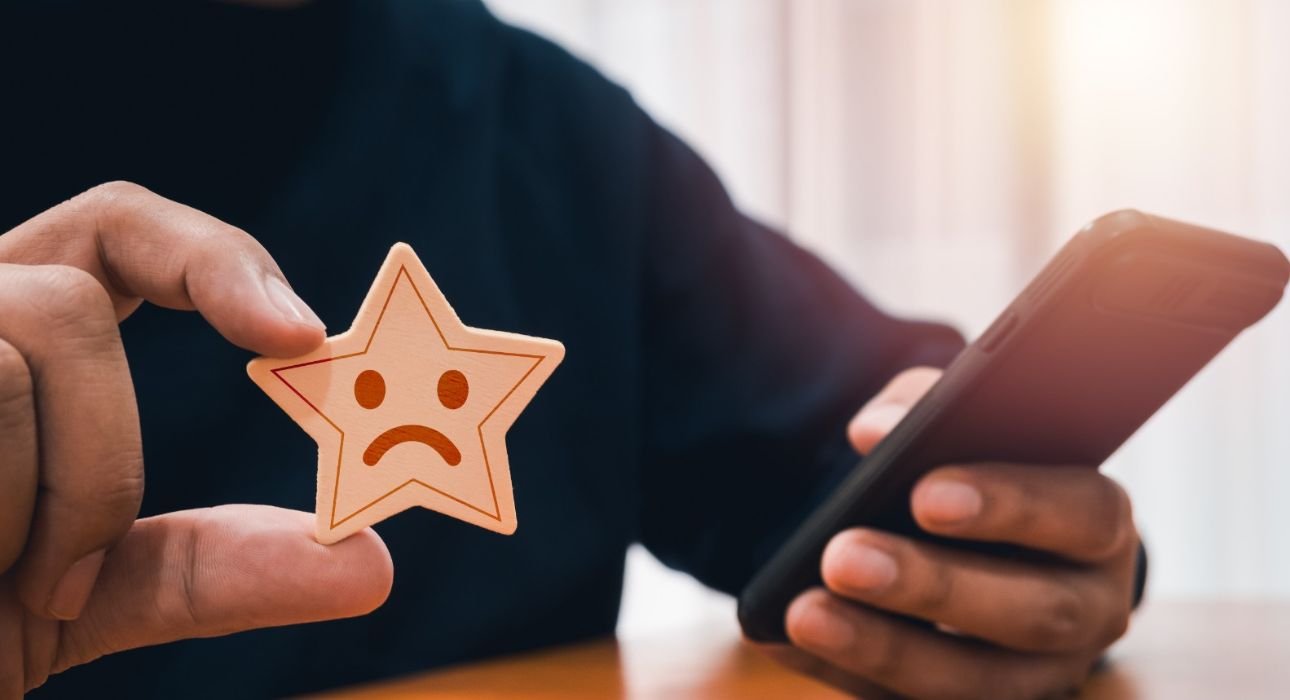It’s just a review, right? Not quite. For many business owners, professionals, or creators, a single harsh comment can feel like a punch to the gut. Negative reviews can trigger strong emotional reactions. A 2022 study from the American Psychological Association found that small business owners reported higher stress levels after receiving poor online feedback. For solo entrepreneurs and personal service providers, the impact is even worse. When your name is your brand, criticism feels personal. There’s also the uncertainty. Is the review true? Will others see it and believe it? These thoughts quickly spiral into anxiety.
The Role of Identity and Reputation
We tie our self-worth to our work. If you’ve spent years building your reputation, a public attack on it cuts deep. You might start questioning your skills, your decisions, even your future. Some people report sleep problems and burnout after a review goes live. Others withdraw from marketing or stop taking risks altogether. It’s not just a bad day. It changes behaviour long-term. I once spoke with a restaurant owner who got a one-star review that went viral. “I couldn’t eat for two days,” she told me. “I kept refreshing the page, hoping it would disappear.”
The Mental Weight of Going Viral for the Wrong Reason
Social media can amplify negativity fast. One bad review can be screenshotted, reposted, and turned into memes. You don’t just worry about what the customer said. You worry about how many strangers will now see it. This type of exposure creates intense pressure. A 2023 Pew Research survey found that 41% of Americans felt that public shaming online had long-term emotional effects. Many linked it to increased anxiety, panic attacks, and isolation. Even if you’re confident in your work, the fear of a review resurfacing again and again can wear you down.
Fake Reviews Hit Even Harder
There’s something especially frustrating about a review that isn’t even real. Fake reviews often come from competitors, disgruntled former employees, or trolls. And because platforms like Google and Yelp take time to respond, the damage sticks around. You’re stuck trying to prove something false didn’t happen. That’s exhausting. I once worked with a clinic whose Google rating dropped from 4.9 to 3.6 in a week due to fake reviews. The owner said it felt like “watching my business get sick and not being able to treat it.”
Real Stats on Mental Health and Online Feedback
Negative online feedback has measurable mental health effects. In a 2021 survey by Trustpilot, 64% of business owners said bad reviews made them feel anxious. Another 43% said it led to lower motivation at work. This isn’t just an ego issue. It’s a workplace health concern. Constant stress can lead to insomnia, decision fatigue, and even physical symptoms like headaches or stomach problems.
What to Do When It Happens
1. Don’t Take the Bait
First, don’t respond right away. It’s tempting to defend yourself, but that often escalates the situation. Take time to cool off. Read the review again later with fresh eyes.
2. Gather the Facts
If the review is false or misleading, document everything. Screenshots, timestamps, emails, receipts. You might need these to report it or to explain your side later.
3. Get It Taken Down (If You Can)
Some platforms let you flag reviews that are fake, irrelevant, or break content rules. You can request that platforms like Google investigate. If the review clearly violates policy, you may be able to remove Google reviews completely.
Keep in mind that removal isn’t always guaranteed. But it’s worth trying, especially if it’s hurting your traffic or reputation.
4. Seek Support
Talk to peers, friends, or even a therapist. You’re not weak for needing support. Sharing your experience helps get it out of your head.
5. Keep Perspective
Remember, one review doesn’t define your entire career. It’s feedback from a single person. Your long-term work and reputation are built over time.
How to Build Resilience
1. Control What You Can
You can’t prevent all reviews, but you can prepare. Make it easy for happy customers to leave good reviews. Add follow-up emails or in-person reminders. Balance out the negative with more positive.
2. Monitor, But Don’t Obsess
Set alerts for new reviews so you’re not constantly checking. But don’t stalk your review pages. That only fuels anxiety.
3. Practice Detachment
It sounds cold, but it works. Try to view reviews as data points, not attacks. This helps you respond calmly and avoid burnout.
4. Create a Mental Health Protocol
Have a personal game plan for when criticism hits. Step away from the screen. Take a walk. Do something else before deciding how to react. One marketing coach I know keeps a “positive file” on her desktop. It’s filled with screenshots of kind messages and glowing reviews. When she sees a bad one, she opens it and reminds herself of the bigger picture.
When It’s Time for Professional Help
If reviews start interfering with your sleep, relationships, or self-esteem, it’s worth talking to a mental health professional. They can help unpack what’s happening and build better coping skills. There’s no shame in needing help. If your car breaks down, you call a mechanic. When your mind’s under pressure, you call someone trained to help.
Final Thoughts
Negative reviews hurt. That’s normal. You’re not soft or overreacting. But you don’t have to suffer in silence. You can take action, protect your mindset, and learn to bounce back. Whether it’s by finding ways to remove Google reviews, leaning on your support network, or reshaping how you respond, there’s always something you can do. Your work is more than one bad comment. Your worth is bigger than a star rating.
